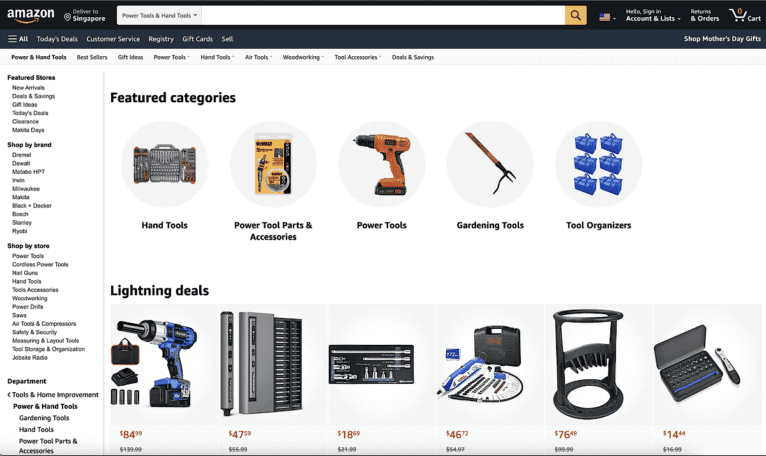In the fast-paced world of digital marketing, search engine optimization (SEO) has emerged as a crucial tool for businesses seeking to improve their online visibility and attract more customers.
To achieve success in SEO, one must focus on keyword research: understanding what words or phrases web users are searching for and optimizing content accordingly. With an ever-increasing number of top keyword research tools available, choosing the right ones can be overwhelming.
This comprehensive guide will explore some of the most effective tools out there, providing advice on how to use them effectively and maximize your SEO strategy. Whether you’re looking to boost website traffic or enhance your brand’s online presence, this guide is sure to have something valuable for you!
Understanding Keyword Research: A Foundation for Successful SEO
A successful SEO strategy depends on keyword research. Without understanding the words and phrases users are typing into search engines, businesses can’t optimize their content to appear in relevant results pages.
Keyword research offers insights into audience behavior and intent, enabling businesses to tailor their digital marketing efforts accordingly.
In today’s constantly-evolving digital landscape, choosing the right keyword research tools can be overwhelming.
Fortunately, there are a plethora of options available that cater to every budget and level of expertise. From free tools like Google AdWords Keyword Planner to premium services such as Ahrefs and SEMrush, these platforms offer critical data on keywords’ effectiveness, competition levels, trends over time, relevance, and other key metrics.
Maximizing your SEO strategy means using top-notch keyword research tools effectively. Leveraging the rich insights provided by these platforms in combination with dedicated resources or professional consultant services tailored precisely for this task will greatly enhance business performance online – ultimately leading to higher visibility in organic search results improving overall customer engagement rates along with website rankings which will result in more revenue growth opportunities long-term
Top Free Keyword Research Tools: Exploring the Best Options
Keyword research is an essential component of any successful SEO strategy. To gain a competitive edge, entrepreneurs must understand what keywords their target audience is using when searching for products or services similar to theirs. In this comprehensive guide, we will explore some of the best free keyword research tools available to help you stay ahead in the game.
One excellent tool is Google Keyword Planner, which can provide valuable insights into user behavior and search volume for specific keywords on both Google Search and YouTube. Another useful option is Ubersuggest by Neil Patel, a popular SEO expert offering detailed data on search volume trends and related keywords that may boost your rankings. Semrush’s Keyword Magic Tool also provides a wealth of information about long-tail phrases and comparative analysis between competing domains.
By utilizing these top free keyword research tools effectively, businesses can develop stronger content strategies that attract more visitors to their websites while boosting organic search rankings – all without breaking the bank!
Paid Keyword Research Tools: Investing in Your SEO Strategy
When it comes to keyword research in SEO, paid tools can offer a wealth of valuable data and insights that free tools are unable to provide. Paid keyword research tools typically have access to larger databases, more advanced search algorithms, and sophisticated analytics features that allow for a deeper level of analysis.
By investing in these tools, businesses can gain a competitive advantage by understanding their target audience better than their competitors. One significant benefit of paid keyword research tools is the ability to uncover long-tail keywords – those with low search volume but high conversion potential.
Free tools may only show popular keywords with high competition levels, leaving businesses without niche terms related to their products or services. With paid keyword research tools, marketers can get granular insights into user intent and behavior that help them tailor content more effectively for different audiences.
Investing in paid SEO strategy through comprehensive keyword research helps align content creation efforts with user behaviors and trends; ranking higher requires both creativity around topics relevant to your business as well as an analytical approach using such top tips available through various notable blogs about Keyword Research Tools like Moz.com/blog/keyword-research-fundamentals-whiteboard-Friday where they give key ideas on how one may take full control while doing this kind of task-oriented work towards achieving his/her set goals online.
Maximizing Keyword Research with Google AdWords Keyword Planner
Maximizing keyword research is instrumental in improving SEO strategy, and Google AdWords Keyword Planner is a powerful tool that can help businesses identify the right keywords to focus on.
This keyword research tool allows users to input a broad topic or phrase and discover related keywords with search volume data, competition levels, and even cost-per-click estimates. It also offers suggestions for new potential target keywords based on an existing website or landing page.
To make the most of Google AdWords Keyword Planner, it’s important to understand how it works and use its features effectively. Start by focusing on high-volume, low-competition keywords relevant to your business or industry niche. Use filters like location targeting, language preference, device type, and time zone adjustment options as required.
Also, analyze competitor websites’ top-ranking pages using this tool while keeping track of monthly changes in rankings to monitor fluctuations that might affect ranking performance.
Keyword research should be an ongoing process as trends change frequently; therefore regularly revisiting this site can lead companies down their paths towards success through targeted efforts focused efficiently around specific demographics both locally and globally depending upon your business goals.
Spend time collecting pertinent information so you’re able to optimize campaigns within customer niches dependent upon popular searches without stepping all over copy essential words needed for digital ad placements during PPC campaigns whether product-specific promotions including seasonal specials or broader foundational branding messaging materials encompassing overarching values establish brands embody best practices useful amongst virtually any user demographic population seeking out these products/services respectively!
Uncovering Hidden Opportunities with Long-Tail Keywords
When it comes to keyword research, most businesses focus on high-volume keywords that get a lot of search traffic. However, by neglecting long-tail keywords – those that are more specific and have lower search volumes – businesses may be missing out on valuable opportunities to reach niche audiences.
These lesser-known phrases may not generate as much traffic individually, but they can add up over time and bring in highly-targeted leads who are more likely to convert into customers. To uncover hidden opportunities with long-tail keywords, start by conducting thorough research using top keyword tools such as Google Keyword Planner or SEMrush.
Look for relevant phrases that have low competition but still show some level of organic or paid search interest. Then optimize your content around these targeted terms by including them in page titles, headers, body copy, and meta descriptions.
By incorporating long-tail keywords into your SEO strategy and creating content tailored specifically to these niche topics, you can position yourself as an expert in your field while reaching potential customers who might otherwise be overlooked with conventional targeting methods. So don’t overlook the power of small yet mighty long-tail content!
Analyzing Competitors’ Strategies with SEMrush and Ahrefs
Analyzing competitors’ strategies is a key component of developing an effective SEO strategy. SEMrush and Ahrefs are two powerful tools that can help businesses gain insights into their competitors’ keyword rankings, backlinks, and overall online presence.
SEMrush allows users to track keywords for both organic and paid search results, as well as monitor the performance of their competitors. By analyzing which keywords bring in the most traffic for competing websites, businesses can adjust their content accordingly to increase visibility on search engines. Additionally, SEMrush provides data on a website’s backlink profile, enabling users to identify high-quality sites that could potentially link back to their site.
Ahrefs also offers robust competitor analysis features such as tracking keyword rankings and monitoring backlinks. However, Ahrefs excels at finding relevant keywords with low competition that will be easier to rank for than high-competition terms used by competitors. This tool also allows users to analyze content gaps between themselves and top-ranking sites to create new pages or optimize existing ones based on what works best for other similar websites.
By using these tools together with strong analytical skills business owners can easily unlock valuable insights into how they compare against other market participants helping them stay ahead of the game with changes happening dynamically throughout the digital marketing space frequently over time ensuring maximum effectiveness towards targeting better returns from audience interaction based on deep dive understanding about customer behavior concerning developed marketing strategies according through any chosen platform available whether it be google adsense or social media channels alike.”
Going Beyond Keywords: Other Factors to Consider in SEO Strategy
While optimizing content around keywords is an essential component of SEO strategy, there are various other factors that businesses must consider to rank higher in search engines. Some of these factors include user experience, mobile optimization, page loading speed, backlinks, and social media presence.
User experience plays a pivotal role in determining the success or failure of a website. Google takes into account the user behavior on websites such as bounce rates and time spent on pages while ranking them. Mobile optimization has become increasingly important today due to the rise of smartphones and tablets; nowadays people tend to browse more through their mobiles than desktops so having a responsive design can prove beneficial for your website’s rankings.
Page-loading speed is another crucial factor that affects SEO rankings since slow-loading sites often lead to high bounce rates since impatient users don’t want to wait longer for webpages to load fully.
Backlinks refer to links pointing back from external sources: quality Backlinking shows search engines about site credibility which ultimately influences ranking position. Social media presence indicates activity level over online platforms like Twitter LinkedIn Facebook etcetera: all considered metrics by Google when it comes down to adjusting Search Engine Results Page Rankings based on this kind of elements related to business internet activities.
In summary, maximizing one’s SEO strategy requires consideration regarding not only implementing keyword research tools but also improving some areas concerning website/user-experience technical aspects like faster loading times and responsive design as well building strong linking networks with other reputable sites while maintaining good social networking practices too!





